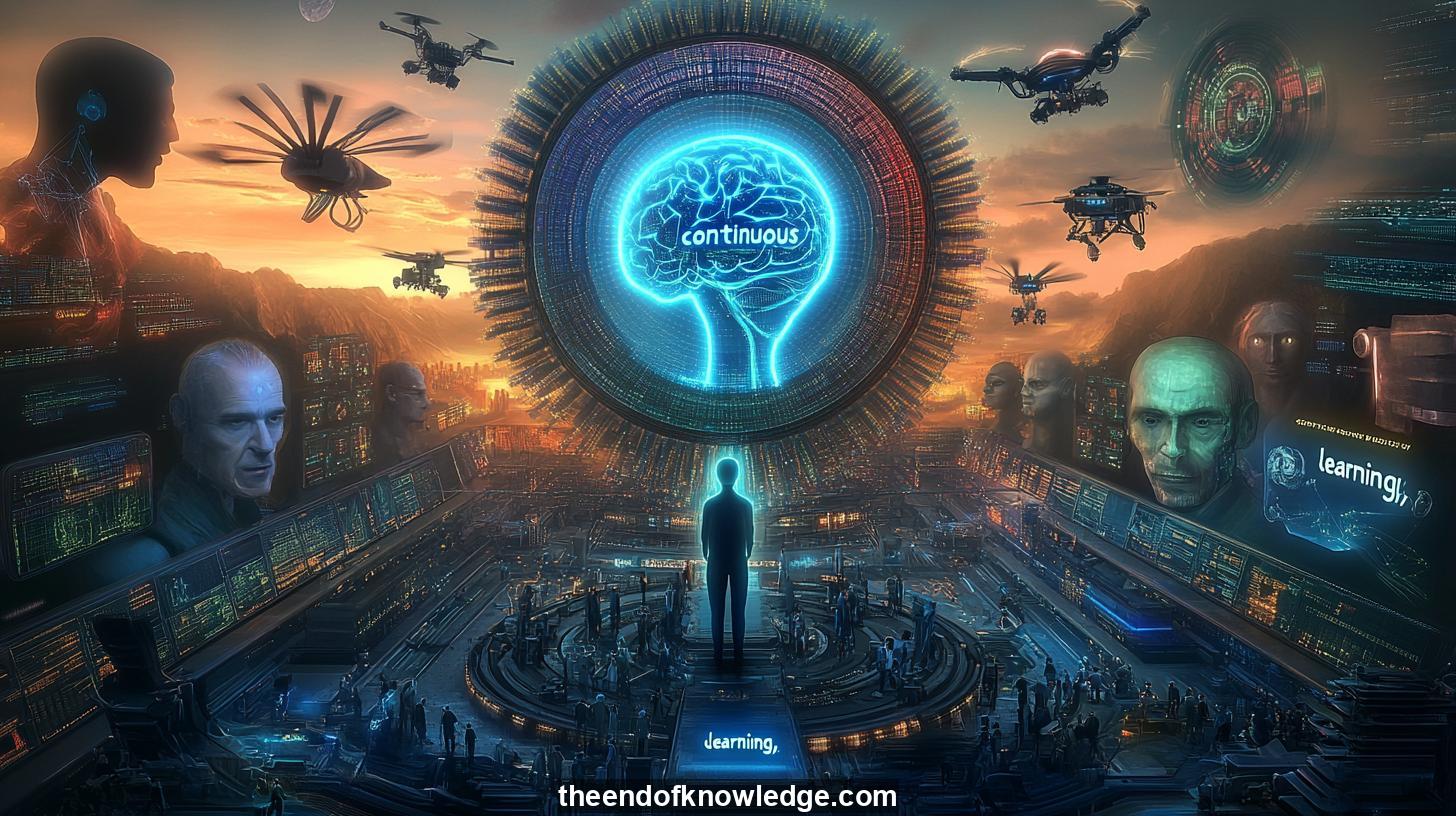 >
>
Concept Graph, Resume & KeyIdeas using DeepSeek R1 :
Resume:
discusses the evolution of programming and the integration of artificial intelligence (AI) in software development, focusing on the impact of models like GPT-3 and DALL-E. It highlights how AI is transforming the way programmers work, enabling faster and more efficient coding through tools like GitHub Copilot and Amazon CodeWhisper. The author emphasizes the importance of understanding the fundamentals of programming, such as algorithms and system architecture, even as AI tools become more prevalent. also explores the ethical and geopolitical implications of AI development, including concerns about data privacy, intellectual property, and the concentration of AI capabilities in large corporations. It concludes by stressing the need for adaptability and continuous learning in the programming community to thrive in an AI-driven future.30 Key Ideas:
1.- AI models like GPT-3 and DALL-E are revolutionizing programming by enabling faster and more efficient coding.
2.- Programmers must understand fundamental concepts like algorithms and system architecture despite AI tools.
3.- AI-powered tools like GitHub Copilot and Amazon CodeWhisper are transforming software development.
4.- Ethical concerns, such as data privacy and intellectual property, arise with AI-generated code.
5.- The concentration of AI capabilities in large corporations raises geopolitical and economic concerns.
6.- Open-source initiatives are crucial for democratizing AI and ensuring accessibility for smaller companies.
7.- The future of programming likely involves a hybrid approach, combining human expertise with AI assistance.
8.- AI models are being fine-tuned for specific tasks, such as code completion and problem-solving.
9.- The integration of AI in programming requires a shift in mindset and workflow for developers.
10.- AI tools can significantly reduce development time but may also introduce new challenges.
11.- The importance of human oversight in AI-driven programming cannot be overstated.
12.- AI is enabling new possibilities for decentralized and multi-agent architectures in software development.
13.- The need for specialized talent in AI development is growing rapidly.
14.- Open-source communities play a vital role in advancing AI technologies.
15.- AI models like Mistral and PaLM are setting new benchmarks for programming assistance.
16.- The future of programming may involve more natural language interfaces for code generation.
17.- AI is democratizing access to advanced programming tools, but challenges remain.
18.- The ethical implications of AI in programming require careful consideration and regulation.
19.- AI is reshaping the landscape of software development, creating both opportunities and challenges.
20.- Continuous learning and adaptability are essential for programmers in an AI-driven world.
21.- AI tools are increasingly being used for code review and optimization.
22.- The development of AI models requires significant computational resources and expertise.
23.- Open-source frameworks are enabling smaller companies to compete with tech giants.
24.- AI is enabling new approaches to problem-solving in software development.
25.- The integration of AI in programming is driving innovation across industries.
26.- AI models are being used to automate repetitive tasks in software development.
27.- The future of programming will likely involve a combination of human and AI collaboration.
28.- AI is changing the way programmers approach debugging and testing.
29.- The ethical and legal implications of AI-generated code are still evolving.
30.- AI is poised to revolutionize the programming industry, but challenges must be addressed.
Interviews by Plácido Doménech Espí & Guests - Knowledge Vault built byDavid Vivancos 2025